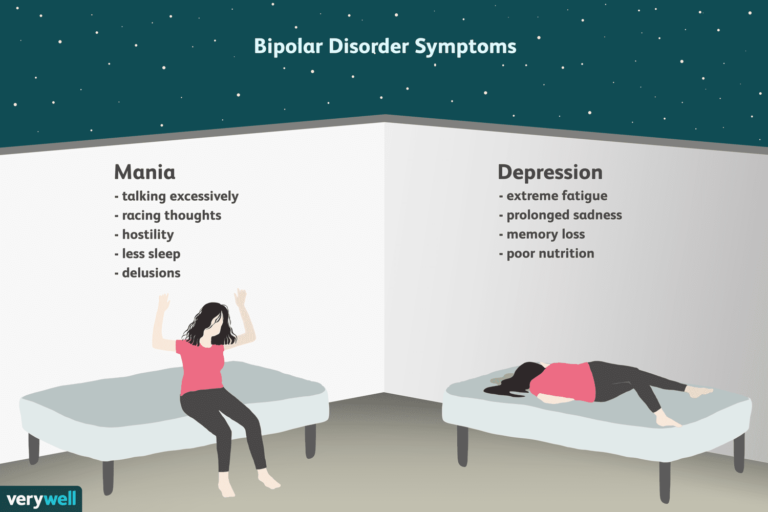
Bipolar disorder isn’t just about having mood swings. It’s a serious mental health condition that used to be referred to as manic depression. There are two main types of bipolar disorder that can differ in terms of the severity and nature of their symptoms.
People with bipolar disorder experience dramatic shifts in mood that may include periods of depression and mania. The nature and severity of these symptoms depend on the type of bipolar disorder that they have.
Bipolar I: Individuals with bipolar I experience at least one manic episode in their lives. Although not required for the formal diagnosis, the vast majority will also experience major depressive episodes during the course of their lives.
Bipolar II: Individuals with bipolar II have at least one hypomanic episode (a less serious form of mania) and at least one major depressive episode.
Symptoms of a manic or hypomanic episode include:
Manic episodes last at least seven days. Hypomanic episodes involve the same symptoms, but the individual’s functioning isn’t markedly impaired and there are no psychotic symptoms.
During a depressive episode, an individual may experience the following symptoms:
Problems with cognitive skills, such as subjective memory trouble, difficulty concentrating, and indecision, can be the first things noticed by others when someone has bipolar depression.
During depressive episodes, individuals may experience a variety of physical symptoms, including unexplained aches and pains.
Changes in weight are also common. While some people struggle to eat when they’re feeling down, others turn to food for comfort. Thus, both weight loss and weight gain can be symptoms of a depressive episode.
Psychomotor agitation, an increase in activity caused by mental rather than physical tension, or psychomotor retardation, slowing of both thought and physical activities, may also occur.
Bipolar disorder occurs in men and women at approximately the same rates. However, the presentation of symptoms and course of the condition may differ depending on the sex that an individual was assigned at birth.
Men are often diagnosed at an earlier age, experience more severe episodes, and are more likely to have co-occurring substance use issues. Women tend to have more depressive episodes and more rapid cycling between manic and depressive episodes
Because these symptoms are not always specific to bipolar disorder and often associated with other conditions, it is important to receive an evaluation and diagnosis from a healthcare professional. Getting an accurate diagnosis early on can lead to more effective interventions and improve treatment outcomes.
